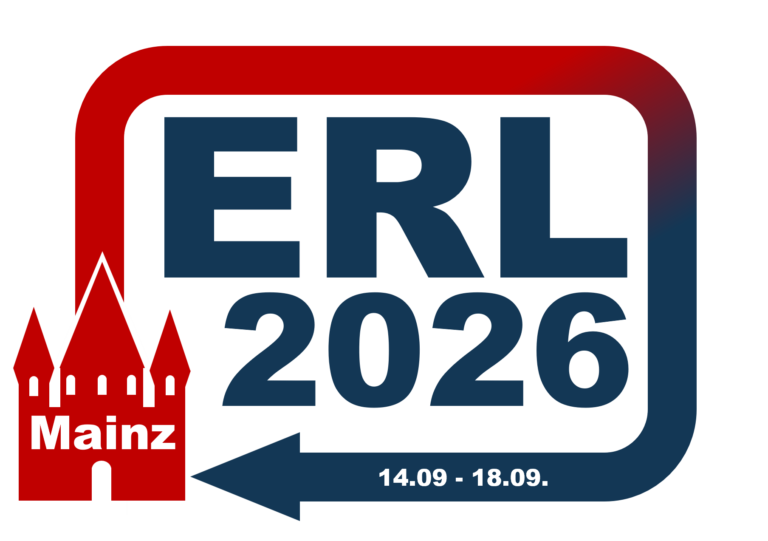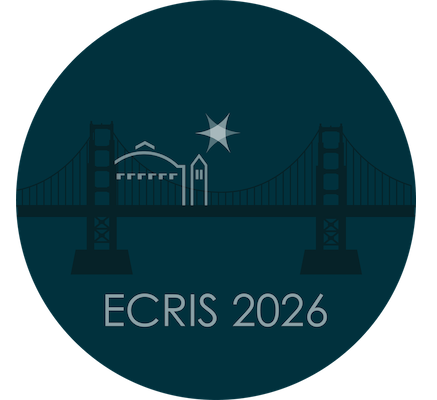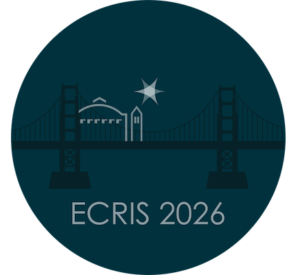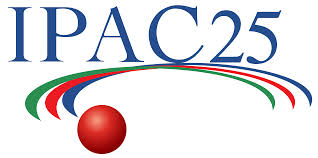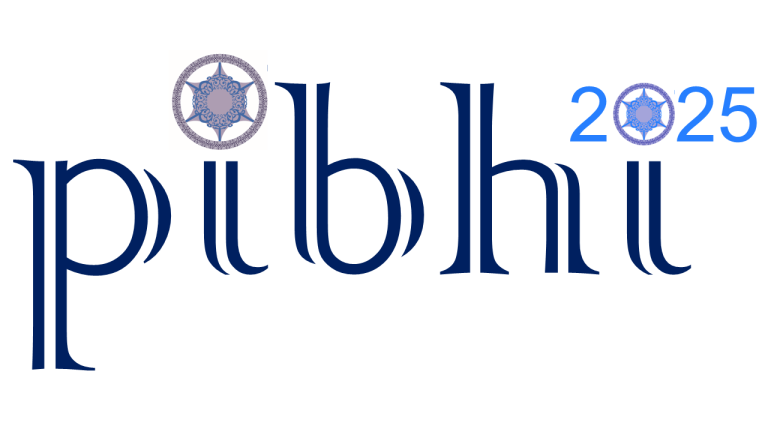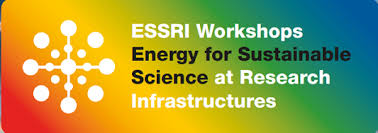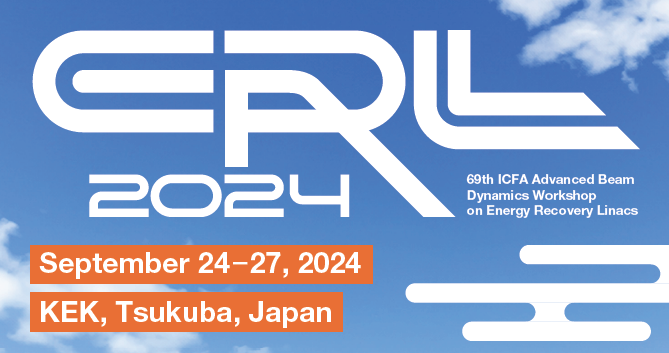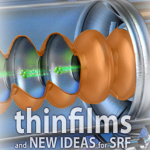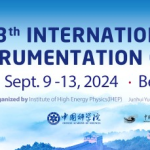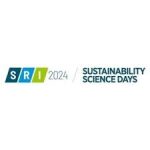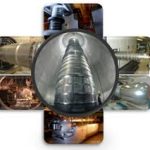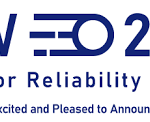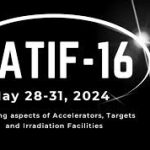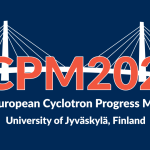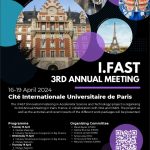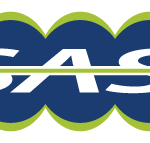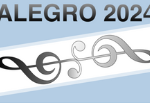Prochains événements :
Plus de détails sur les événements :
In the framework of the series of the european workshops on photocathodes for particle accelerator applications (previousy EWPAA), the next event will be held in France, near Paris, following the 5th edition hosted at HZDR in Dresden in 2024.
Organized by CNRS/IN2P3 via LPSC and IJCLab, the Photocathode for Accelerator Science in Europe workshop (PhASE26) will hosted by Irène Joliot Curie Laboratory (IJCLab) in Orsay, September 21-23, 2026. This meeting brings together experts in the field of photocathode electron sources dedicated to particle accelerators aiming to share knowledge and latest progress in this field, critical of future accelerators.
The event will propose about 40 oral presentations, organized in 8 sessions, as well as a poster session and visits of IJCLab’s infrastructures.
The sessions will cover:
- overview of photocathode research
- accelerator applications of photocathodes
- photocathode related studies and novel concepts
- metallic photocathodes
- semiconductor photocathodes
- polarized photocathodes
- theory of photocathodes
- characterization techniques.
A social event is planned with a diner cruise on the Seine river, allowing sight seeing of beautiful Paris monuments (Notre Dame, Eiffel tower, Louvre).
Proceedings will be published (no peer-review) based on one-page summary provided by each speaker.
If you need a visa to attend this event, please contact the organizers.
We hope to see you in Orsay !
In the framework of the series of the european workshops on photocathodes for particle accelerator applications (previousy EWPAA), the next event will be held in France, near Paris, following the 5th edition hosted at HZDR in Dresden in 2024.
Organized by CNRS/IN2P3 via LPSC and IJCLab, the Photocathode for Accelerator Science in Europe workshop (PhASE26) will hosted by Irène Joliot Curie Laboratory (IJCLab) in Orsay, September 21-23, 2026. This meeting brings together experts in the field of photocathode electron sources dedicated to particle accelerators aiming to share knowledge and latest progress in this field, critical of future accelerators.
The event will propose about 40 oral presentations, organized in 8 sessions, as well as a poster session and visits of IJCLab’s infrastructures.
The sessions will cover:
- overview of photocathode research
- accelerator applications of photocathodes
- photocathode related studies and novel concepts
- metallic photocathodes
- semiconductor photocathodes
- polarized photocathodes
- theory of photocathodes
- characterization techniques.
A social event is planned with a diner cruise on the Seine river, allowing sight seeing of beautiful Paris monuments (Notre Dame, Eiffel tower, Louvre).
Proceedings will be published (no peer-review) based on one-page summary provided by each speaker.
If you need a visa to attend this event, please contact the organizers.
We hope to see you in Orsay !
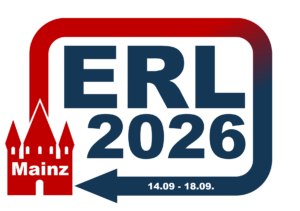
We are happy to welcome You to the upcoming ERL Workshop 2026 hosted by the MESA group on univerity Campus of Mainz university Sptember 14th to 18th 2026.
Information about registration and abstract submission will follow in early spring 2026.
Hope to see You at Mainz!
We are delighted to announce and invite you to participate in the 33rd Linear Accelerator Conference (LINAC 2026), which will take place from 16–21 August 2026 at the Daejeon Convention Center in Daejeon, Korea. The conference will be hosted by the Institute for Basic Science (IBS).
The LINAC conference series is the premier biennial gathering for the worldwide community of linear accelerator experts. It provides a unique opportunity to learn about the most recent advances in research, development, and applications of linear accelerators for both hadron and lepton beams.
In keeping with its long and successful tradition, LINAC2026 will feature a comprehensive scientific program with invited and contributed talks, poster sessions, and an industrial exhibition. A rich program of social events will complement the scientific sessions, fostering informal knowledge exchange and providing participants with the opportunity to experience Korean culture. Conference attendees will also be invited to visit the RAON heavy-ion accelerator facility, currently under operation in Daejeon.
Active participation of students and early-career researchers is strongly encouraged. A number of scholarships will be made available to support student attendance.
Industry partners and sponsors are warmly invited to contribute to the success of LINAC2026. The industrial exhibition and a variety of sponsorship opportunities will provide excellent visibility to companies and organizations involved in the design, construction, and operation of accelerators and related technologies.
Early registration will open on January 5, 2026 and detailed information on the conference program, abstract submission, accommodation, and social events will be provided in due course on the Indico website: https://indico.jacow.org/e/LINAC2026.

We are pleased to share that the 2nd International Conference on Accelerators for Research and Sustainable Development (AccConf2026) will be held from 22–26 June 2026 in IAEA Headquarters in Vienna, Austria. More information is available on the IAEA conference website: https://www.iaea.org/events/accconf2026.
This conference will provide an excellent forum to present recent developments in accelerator technologies and their diverse applications in research, health, environment, food safety, and energy. It also offers a unique opportunity to connect with colleagues from academia, industry, and international organizations.
In addition to the scientific programme, we are planning a variety of side events, exhibitor sessions, technical tours, and dedicated networking opportunities for young professionals – and not only. These activities are designed to make the conference a vibrant and engaging experience for all participants.
We strongly encourage you to submit a synopsis in order to seek oral/poster presentation and contribute to the discussions that will shape the future role of accelerators in sustainable development. Synopses can be submitted via the conference INDICO page: https://conferences.iaea.org/event/426/.

We are thrilled to invite you to join us from May 17-22, 2026, at the Centre International Deauville (CID) for a fully in-person event.
IPAC is the premier annual gathering for the global accelerator community, bringing together scientists, engineers, and industry professionals from around the world. This conference is a unique opportunity to explore the latest breakthroughs in accelerator research and development, as well as to receive updates on current and future accelerator facilities.
The 2026 edition of IPAC is hosted by the GANIL-SPIRAL2 laboratory in collaboration with CEA, CNRS, Synchrotron SOLEIL, and ESRF. These organizations are renowned for their expertise in the design, construction and operation of a wide variety of particle accelerators and innovative accelerator technologies.
IPAC’26 will serve as a vibrant platform for networking amongst international leaders in accelerator science, representing major national and international facilities and institutions. With over 1,500 attendees expected, this event offers a fantastic opportunity to learn about cutting-edge research, hear about new projects and gain insights into accelerator facilities across the globe. Additionally, you will have the chance to meet and connect with your peers, fostering valuable professional relationships.
This event also offers an exceptional opportunity for industry to showcase their innovative products and to promote their brands and capabilities to the accelerator community through the sponsoring of this event.
Deauville, a picturesque seaside city in Normandy, is famous for its American Film Festival, racetrack, horse racing events and historical architecture. The CID venue provides an elegant and unique setting for our industry exhibition, which will be available from the opening session on Monday morning until the Gala dinner on Thursday evening. It will be located alongside the daily poster sessions, catering services and main conference routes, ensuring maximum visibility and interaction for all exhibitors with the IPAC delegates.
About 85 topics are to be discussed within the oral presentations and about 1600 topics will be presented and discussed through the daily poster sessions.
Please join us to meet and to interact with accelerator scientists, engineers, students, decision makers and industries.
We look forward to welcoming you to IPAC’26 in the inspirational location of Deauville, Normandy.
This event promises to be an exceptional opportunity for industry professionals to showcase their innovative products and promote their brands and capabilities to the accelerator community through active participation and sponsorship.
See you in May 2026!

Les GDR SCIPAC, MI2B et SciNEE, en collaboration avec EMIR&A ont le plaisir de vous inviter à l’atelier « Accélérateurs, Recherche et Société » qui se déroulera du 25 au 27 mars 2026 à Grenoble (LPSC).
Cet événement a pour but de présenter un panorama des accélérateurs et de leurs applications et de le mettre en regard des besoins des utilisateurs, actuels et futurs. Il offre une opportunité de rencontre et d’échange entre les communautés des concepteurs et exploitants des accélérateurs et celles des utilisateurs. Les thèmes couverts seront les accélérateurs (panorama des machines), la santé et matière vivante (radiothérapie, production de radioisotopes, radiobiologie), la matière inerte (matériaux sous irradiations, effets sur l’électronique, caractérisation), l’énergie (réacteurs nucléaires), l’environnement (décontamination) et le patrimoine (analyse par faisceaux d’ions, imagerie des matériaux anciens), ainsi que les réseaux et conditions d’accès aux machines.
Une visite de l’ESRF est programmée le 25 mars au matin (sur inscription).
Cet atelier s’adresse à toutes et tous, chercheurs, ingénieures, techniciens, doctorantes, postdoctorants.

Les journées annuelles 2025 du GDR SCIPAC et du Réseau Instrumentation Faisceau se dérouleront au GIP Arronax (proche de Nantes) du 16 au 17 décembre 2025

Les Journées Accélérateurs de la Société Française de Physique (SFP) sont organisées tous les deux ans par la division Accélérateurs de la SFP.
Les journées sont un moment privilégié pour rassembler l’ensemble de la communauté Accélérateurs française en un même lieu pour présenter l’état de l’art des accélérateurs.
Ces journées ne seraient possibles sans les support financiers du CNRS, CEA, CEA-DAM, IN2P3, ESRF, SOLEIL, P2I et de l'association PIGES.
Le site web de la division accélérateurs de la SFP est accessible à l'adresse: http://accelerateurs.sfpnet.fr/
Overview
Following the tradition of past SRF conferences, SRF2025 will be held as an in-person event, featuring a robust scientific program that includes invited and contributed oral presentations, as well as poster sessions. The conference will take place from Sunday, September 21, to Friday, September 26, and will cover a broad range of topics listed below.
In addition to the regular sessions, the program will include two "Hot Topic" panel discussions and a keynote presentation. An industrial exhibition will run throughout the week, providing an excellent opportunity to exchange information on recent research developments and activities with industry vendors.
The stimulating scientific program will be complemented by social events designed to encourage informal knowledge exchange and networking among participants.
Topics
1) SRF Facilities
・Ongoing projects
・Future projects
・Operational experience and lessons learned
2) Fundamental SRF research and development
・High quality factors/high gradients
・New materials beyond niobium
・Film coated copper cavities; multi-layer films
3) Cavities
・Nb material
・Cavity design/fabrication/preparation/tuning
・Non bulk Nb cavity
・Novel structure
・Diagnostics for cavity test
4) SRF Technology
・Tuners
・Input couplers; higher-order mode couplers and dampers
・Assembly/integration
・Low-level RF control/microphonics
・RF sources
・Control System(interlock, protection)
5) SRF Applications
・Quantum computing applications
・Medical applications
・Detector applications for physics experiments
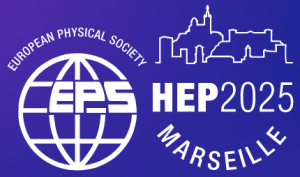
We are thrilled to host the 2025 European Physical Society Conference on High Energy Physics in the vibrant city of Marseille, France. This exciting event will take place at the iconic Palais du Pharo, offering a spectacular setting for groundbreaking discussions and discoveries in high energy physics.
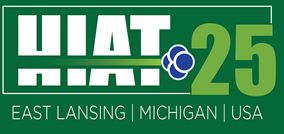
The Facility for Rare Isotope Beams is pleased to announce the 16th International Heavy Ion Conference, HIAT2025, to be held in-person at the Kellogg Hotel and Conference Center on the campus of Michigan State University in East Lansing, Michigan on 22-27 June 2025.
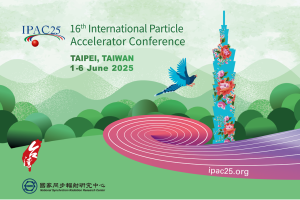

The eleventh edition of the Future Circular Collider (FCC) Conference will take place in Vienna, Austria, from 19 to 23 May 2025, at the Vienna Imperial Palace (Wiener Hofburg) in the city center.
FCC Week 2025 will be the first collaboration meeting following the completion of the FCC Feasibility Study report in March 2025 and will offer a comprehensive review of the project's progress, ushering in the next project phase. The results of the FCC Feasibility Study will inform the next update of the European Strategy for Particle Physics.
The conference will bring together international experts across multiple domains to advance the ongoing design work and strengthen the collaboration for CERN's proposed post-LHC research infrastructure. The event is organised in collaboration with the Institute of High Energy Physics (HEPHY) of the Austrian Academy of Sciences (ÖAW), BOKU University, the Technische Universität Wien (TU Wien), the Vienna University of Economics and Business (WU Wien), with the support of the AdvantageAustria - Austrian Federal Economic Chamber, UNIQA and the City of Vienna
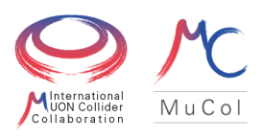
The 4th Annual Meeting of the International Muon Collider Collaboration and the 2nd MuCol Annual Meeting will take place in the week 12-16 May 2025. The meeting will be hosted by DESY in Hamburg, Germany. Participation via Zoom will be made possible for people who cannot attend in person.
The meeting will cover all areas of study and development. More details are available in the detailed agenda.
As for our previous meetings, we wish to profit from this opportunity to strengthen integration among the various activities and collaboration.

Le laboratoire IJCLab organise une journée de commémoration dédiée à Sébastien Bousson le mercredi 14 mai 2025 à l'Auditorium Pierre Lehmann (Bâtiment 200). Cet événement rendra hommage à ce chercheur d'exception qui a consacré sa carrière aux accélérateurs et a marqué profondément notre communauté scientifique.

Le GdR SCIPAC organise un atelier sur « les accélérateurs laser-plasma et RF, complémentarité et synergies », du 12 au 14 mai 2025 à l'IJCLab.
L'objectif de cet atelier est de présenter l'état de l'art de l'accélération laser-plasma en regard des performances actuelles des accélérateurs radio-fréquences et des besoins pour les prochaines générations d'accélérateurs en vue d’améliorer les synergies entre les deux technologies. Au delà du développement de synergies et de complémentarités, un des principaux buts est d'identifier les domaines d'application où l'accélération laser-plasma pourrait être pertinente à court, moyen ou long terme et, en la comparant aux performances actuelles des accélérateurs RF, mettre en évidence les défis restant à relever.
Après quelques présentations générales, l'atelier sera organisé en sessions qui porteront sur les sources de lumière, les applications médicales, et autres applications de l'ALP ainsi que sur les challenges de l'ALP et le couplage entre les accélérateurs ALP et RF. Des temps importants seront réservés pour permettre la discussion.
Enfin des visites d'installations d'accélérateurs laser-plasma sont proposées.
The SLHiPP workshop is an opportunity to get together for high intensity proton/ion facilities in an informal format with lots of time for discussions and informal meetings. We intend to create a program for engineers, scientists and technicians from facilities under design, under construction and/or in operation. There will be a focus on SC LINACS but we are also willing to include targets and other aspects of our facilities.
The program will be created by a small program committee with representatives from ESS, MYRRHA, IFMIF-DONES, and SPIRAL2.
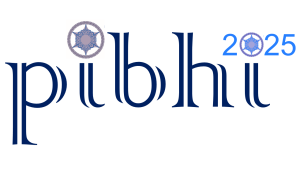
Accelerators worldwide require reliable sources, usually based on ECR heating, delivering intense currents of monocharged or highly charged ions, often much larger than the ones achieved. R&D efforts have been constantly carried out worldwide to ensure high beam availability and source performance.
The workshop aims to gather scientists involved in the design and operation of such sources to compare different experiences and to discuss and find solutions to the several operational troubles usually encountered (e.g., stable and reproducible production of such intense beams, extraction and transport of space-charge-dominated beams, etc.).
The main scope of the workshop is to stimulate discussions among the attendees on several topics of interest by the community, in dedicated round tables which usually are not part of the program of classical conferences like ICIS or ECRIS.
The Workshop is organized by the Istituto Nazionale di Fisica Nucleare-Laboratori Nazionali del Sud. The venue is placed at the foot of the Etna Volcano - the highest and most active in Europe - in a city that is now experiencing its third millennium of history since its establishment in 730 BC.
The workshop includes several social events, which will enable participants to mix fertile cultural discussions with the state-of-art of our discipline enjoying the environment with natural and historical beauties.

Workshop organized in the framework of the IN2P3 Master Projet "Ions radioactifs" and in the hospices of the GDR SCIPAC.
This workshop aims at discussing the strategy for ISOL beam R&D for SPIRAL 1 and ALTO for the coming years.

Le GDR organise sa journée annuelle au CEA Saclay le 18 Décembre 2024

Le GDR organise un workshop sur le calcul du 16 au 17 octobre 2024 à IJCLab, qui sera adossé aux rencontres accélérateurs de la SFP. Cet atelier traitera du calcul pour les accélérateurs (dynamique faisceau, modélisation multi-physique, simulations plasmas, optimisation et IA). Le contenu sera précisé prochainement.

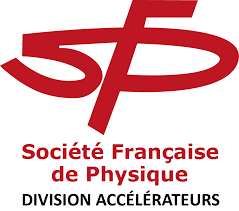

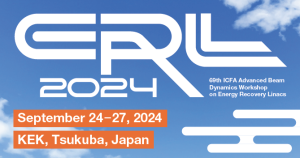
The workshop on Energy Recovery Linacs (ERL'24) is the tenth in the series of biannual international workshops covering accelerator physics and technology of Energy Recovery Linacs. The workshop will serve as a forum for scientists and engineers from around the world to review the latest developments in ERL physics, technology and applications, to exchange ideas.
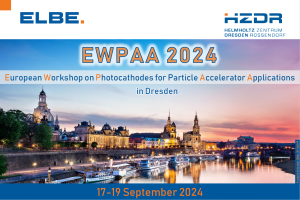
We are pleased to announce the next European Workshop on Photocathodes for Particle Accelerator Applications (EWPAA 2024) which will be held on September 17-19, 2024. This in-person workshop will be hosted by Helmholtz-Zentrum Dresden-Rossendorf in Dresden, Germany.
Following the successful experience of previous EWPAAs, our goal is to create a communication platform for photocathode enthusiasts worldwide. This will be achieved through a scientific program that includes both oral presentations as well as poster sessions to facilitate face-to-face interactions between participants. There is no registration fee for the workshop.
We cordially invite you to participate in the workshop and present your research. The program will cover a variety of areas, including operational experience, preparation, materials, instrumentation, analytical methods, theoretical modelling, industrial applications, and novel concepts.
The sessions will be mostly composed of invited talks, and few remaining time slots may be filled with proposed contributions. Abstract submission for both, invited talks and posters, will open on April 1 – we are eager to see your contributions!

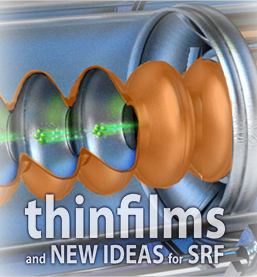
The 11th Workshop in this series will further the goal of providing a Forum for new initiatives in innovative thin films and related technology to advance future generations of superconducting RF accelerators. Present superconducting RF accelerator technology is based on predominantly bulk niobium, for which the state of the art in performance is reaching the theoretical limit. Thin film technology offers the prospect of considerable savings in fabrication costs and opens the way with innovative technologies to the use of alternative superconducting materials with enhanced intrinsic properties such as critical temperature and critical field. Intensive and coordinated R&D effort is of decisive importance for the scientific community.

IBIC Series bring together the world community of experts in instrumentation for particle accelerators, to explore the physics and engineering challenges of beam diagnostics and measurement techniques for charged particle beams.
IBIC2024 is held by Institute of High Energy Physics (IHEP), which is China?s biggest laboratory for the study of particle physics. BEPCII and CSNS, two large scale facilities are operating, HEPS, a fourth-generation light source is under construction in IHEP. As part of the conference, a tour of the HEPS construction site or BEPCII tunnel is organized.
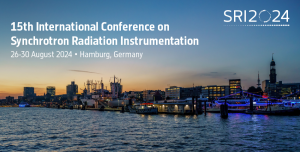
The International Conference on Synchrotron Radiation Instrumentation (SRI) is a successful conference series continuing for over 40 years, organised by the community of worldwide synchrotron radiation and X-ray free electron laser facilities.
This 15th SRI conference will again be hosted by Deutsches Elektronen-Synchrotron (DESY) and the European XFEL, as the last SRI 2021 conference could only take place online.
The SRI conferences are important for the worldwide community to share key experiences in scientific and technical developments. Having timely access to the latest information and new ideas is of crucial importance for the future development of all light sources, the development of the field as a whole as well as for the economic and political development of participating countries.
Along the conference an industry exhibition is scheduled. Further details will be published soon.
LINAC is the main bi-yearly gathering for the world-wide community of linear accelerator experts. The conference will provide a unique opportunity to hear about the latest advances in research and developments on linacs and their applications.
Following a long and successful tradition, LINAC2024 will feature invited and contributed talks, as well as poster sessions and an industry exhibition. A stimulating scientific program will be complemented by social events that promote informal knowledge exchange. There are several sponsorship opportunities for all those who would like to support the event and gain visibility. We plan on an in-person conference with very limited remote participation. Attendees will have the opportunity to participate in a special virtual tour of facilities at Argonne National Laboratory (ANL) to see the newly commissioned Advanced Photon Source Upgrade as well as other accelerator facilities, and to view the progress of the Proton Improvement Plan II (PIP-II) Superconducting radiofrequency linac and associated facilities at Fermi National Accelerator Laboratory (FNAL).

This is the 27th International conference in the biennial series that began in 1968 as a Conference on the Use of Small Accelerators for Teaching and Research. Our conference series is unique in that it brings together researchers from all over the world who use particle accelerators in their research and industrial applications. Each year the topic areas are reviewed and updated to reflect current research interests.

The AAC’24 workshop is a by-invitation biennial forum for intensive discussions on long-term research in advanced accelerator physics and technology. Since its inception in 1982, the AAC Workshop has become the principal US meeting for advanced particle accelerator research and development with strong international participation. We are anticipating over 300 scientists and research leaders in particle-beam, laser, and plasma physics to participate in this year’s meeting. This research supports the development of capabilities for the basic sciences, from photon science to high energy physics, as well as the development of compact accelerators for industrial, medical and security applications.

We want to bring together the worldwide accelerator community and other industries to exchange experiences in designing, testing, commissioning, operating, and maintaining reliable facilities. This workshop aims to stimulate information sharing on technical issues and challenges faced, common cultural and human factors, and future opportunities.
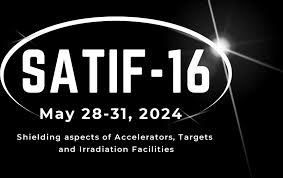
The Sixteenth Workshop on Shielding Aspects of Accelerators, Targets and Irradiation Facilities (SATIF-16) will take place on 28-31 May 2024 at the National Laboratories of Frascati of the Italian National Institute for Nuclear Physics.
The SATIF workshops aim to promote information exchange among experts in the fields of radiation physics and the application of ionising radiations in different fields of science and technology. The event will address important aspects related to the modeling and design of accelerator shielding, as well as updates on new and emerging features of the computation tools including FLUKA, MARS, and PHITS, high resolution radiological assessments for large scale areas with automated run-time optimisation for the simulation of deep penetration of radiation in shielding structures, machine learning driven design optimisations, and comprehensive benchmarking exercises. Main objectives of SATIF meetings are to:
- promote the information exchange among experts in the field of accelerator shielding and related topics;
- identify areas for international co-operation;
- create task forces in order to achieve progress in specific priority areas.
SATIF workshops have been held once every two years since 1994, rotating between the United States, Europe, and Asia. In addition to organising these workshops the SATIF group also co-ordinates comparative analyses in between the workshops.
The activities of SATIF are jointly sponsored the OECD Nuclear Energy Agency (NEA) and its Nuclear Science Committee (NSC), and by all participating institutions.

Le GDR SCIPAC organise un événement, en lien avec l’atelier ISOL-France VI qui aura lieu du 27 au 29 mai 2024 à l’IPHC (Strasbourg). Dans le but de présenter et discuter les avancées de la communauté ISOL-France, l’atelier est organisé en 4 sessions : production de faisceaux radioactifs, spectroscopie laser, pièges à ions et désintégration bêta. Chacune comprendra un exposé invité, suivi de courtes présentations sur l’état des activités ouvrant sur des discussions générales. S’adossant à cet événement, SCIPAC, à travers son axe 1, organise un atelier dédié à la production de faisceaux stables et radioactifs ainsi qu’à leur accélération pour la physique nucléaire.
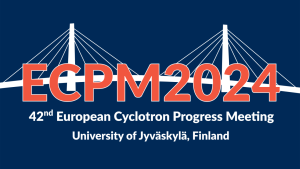
The 42nd European Cyclotron Progress Meeting (ECPM2024) will take place on May 27-29, 2024 at the University of Jyväskylä, Finland.
The European Cyclotron Progress Meeting is devoted to the physics and technology of cyclotrons, their applications in science, medicine and industry, and to related topics. Status reports on existing facilities as well as innovative developments and progress reports on evolving projects are welcome.

Le GDR SCIPAC organise un événement d’une demi-journée dédié aux codes de simulation de l’hydrodynamique des plasmas et leurs applications, le 23 mai matin au LPGP (Orsay). Ces codes étant utilisés pour étudier la formation de canaux plasma pour le guidage d'une impulsion laser intense exploité dans l'accélération par sillage laser-plasma pour des longues distances, l'objectif est de présenter les codes disponibles et leur utilisation pour cette application spécifique.
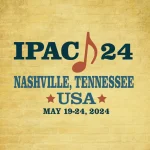
IPAC is a major international event for the worldwide particle accelerator field and industry. The IPAC’24 edition will be held in Nashville, Tennessee (USA), May 19-24. Pioneering research and development in accelerator technologies will be presented by global experts. Project leaders will present new accelerator projects, progress on active upgrades and operational status of accelerator facilities across the globe. Over 1,200 delegates and 80 industry exhibitors are expected to attend this remarkable and noteworthy event. IPAC’24 will offer the most complete review on new ideas, important results and ground-breaking technologies in the field of particle accelerator science and technology.
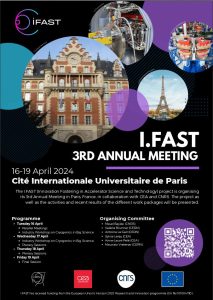
The I.FAST (Innovation Fostering in Accelerator Science and Technology) Innovation Pilot project for the Particle Accelerator community will hold its 3rd Annual Meeting in Paris, France, from Wednesday 17 to Friday 19 April 2024 (plenary sessions). Activities and recent results of the different Work Packages will be presented. Special sessions will be devoted to collaboration with industry, sustainability, and diversity in science and technology. Parallel WP meetings and an industry Workshop on cryogenic technology will precede the event, on 16-17 April.

A new european project is launched in order to Innovate for Sustainable Accelerating Systems (iSAS, https://indico.ijclab.in2p3.fr/event/9521/). Following the european R&D roadmap for accelerator technology and based on a collaboration between research institutions and industry, several accelerator technologies will be developed, prototyped, and tested, in order to enable significant energy savings in accelerating particles. iSAS will adress energy-saving technologies that are at the core of the superconducting RF accelerating systems.
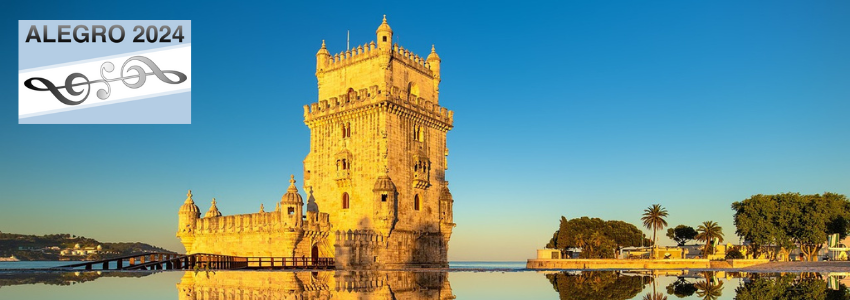
Le workshop ALEGRO 2024 se tiendra à Lisbonne (Portugal) du 19 au 22 mars 2024. Lors de cet atelier organisé en présentiel, les contributions des accélérateurs plasmas à la physique des particules et des hautes énergies seront discutées. Les inscriptions sont ouvertes jusqu’au 15 février, leur nombre est limité à 100. Les soumissions de posters sont encouragées jusqu’au 15 février. Le comité du programme scientifique (SPC) pourra inviter certaines de ces contributions pour un exposé oral.
La réunion de lancement du GDR SCIPAC a eu lieu le 13 décembre. Elle a été un grand succès avec 85 participants, rassemblés sur site à Orsay (IJCLab) et en visioconférence.





